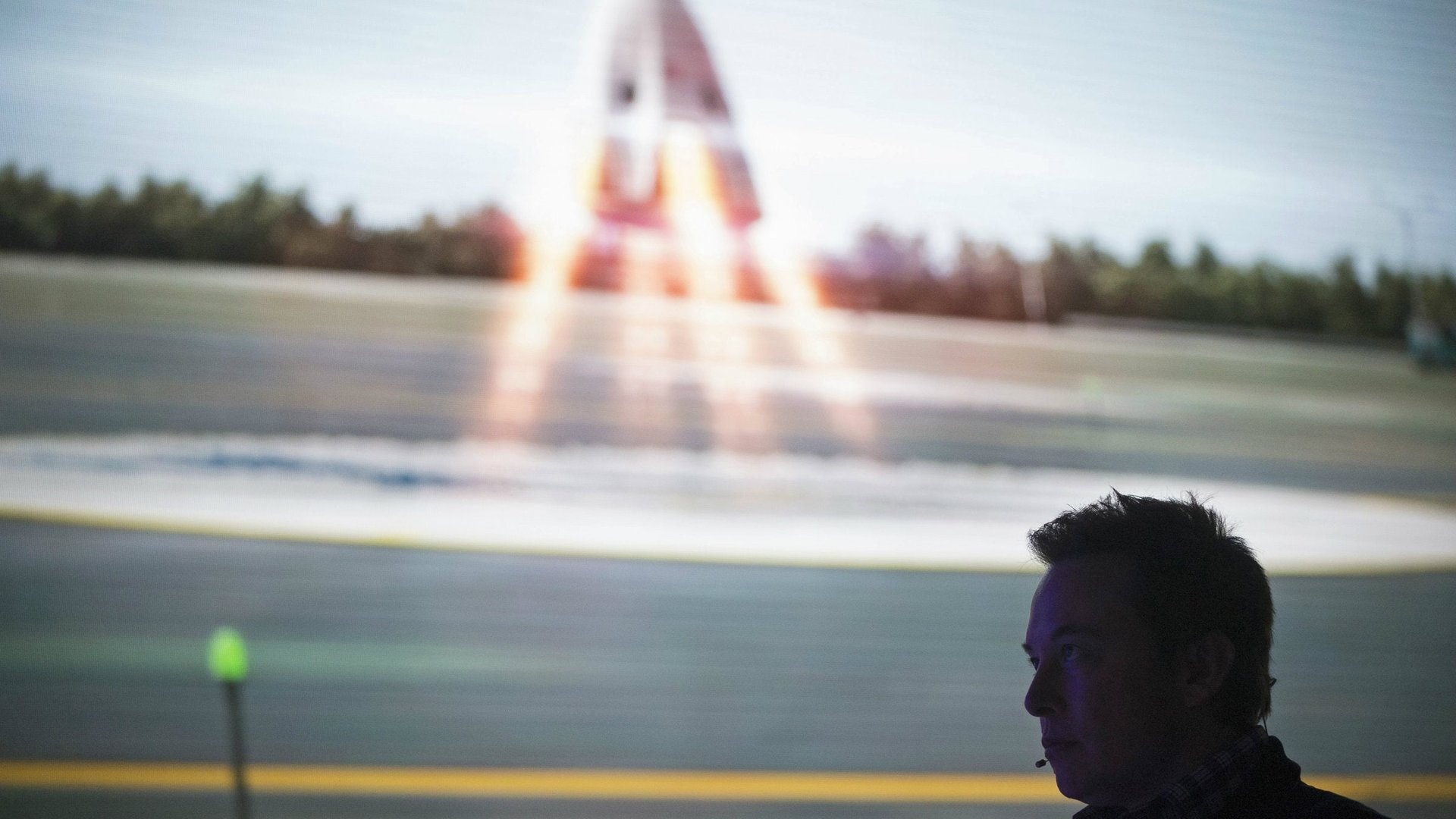Elon Musk’s employees adore and fear him, according to a new biography
There’s this guy that’s pretty sure the thing you’re looking at right now is one of the greatest threats to humanity. No, he’s not talking about our growing obsession with staring at sheets of digitised glass, and the unhealthy sedentary existence associated with doing so. He’s talking about the thing living inside the machine humming quietly behind that glass: artificial intelligence.


There’s this guy that’s pretty sure the thing you’re looking at right now is one of the greatest threats to humanity. No, he’s not talking about our growing obsession with staring at sheets of digitised glass, and the unhealthy sedentary existence associated with doing so. He’s talking about the thing living inside the machine humming quietly behind that glass: artificial intelligence.
It turns out that Elon Musk, one of the world’s most successful entrepreneurs, is plagued with existential worries. His new biography, Elon Musk: Tesla, SpaceX, and the Quest for a Fantastic Future, reveals the billionaire engineer is seriously concerned about the rise of technology so intelligent it could destroy the human race in an effort to protect itself. Why should we listen to him? Well, when it comes to the future, he – more than anyone – is making it happen.
With his company Tesla, he’s transforming the automotive industry by producing the most compelling range of cars of all time – and they’re electric. With SolarCity, he’s producing the cheapest form of energy in most states of the US, and it’s through solar power. And with SpaceX, he’s building state-of-the-art rockets and spacecraft far cheaper than anyone else, that are about to become an order of magnitude cheaper through partial and full reusability.
Why is Musk, who sold his founding stake in PayPal for more than US$150m (£97m), doing this? To increase our chances, to enable the expansion of humanity, to take one of our eggs out of this basket and place it on Mars as soon as possible. A decade ago, the vast majority of serious thinkers laughed these ideas off as ludicrous. Not now.
Musk had a difficult start in South Africa as the unassuming nerd from a broken family. He was a loner during childhood and suffered for years from bullying in the spartan Afrikaner culture he was brought up in. But now the man, sometimes known as General Musk, has risen. He has willed three recently thought impossible companies into existence, almost simultaneously, each now worth on the order of US$10 billion (£6 billion).
In the biography, Ashlee Vance level-headedly paints an insightful picture of the vehemence that is Musk, his growth into a leader, the personal sacrifice and torture he has chosen to endure, and the arduous development of his companies.
Any worries that the book would be a shallow money-grabbing rehash of a dozen YouTube interviews are swiftly put to bed. Vance battled to get Musk on side and eventually managed to conduct regular interview with the man himself, the people closest to him, and those that were there at pivotal points throughout his life so far.
As someone who started life in similarly difficult circumstances in post-Apartheid South Africa, with a background in aerospace and a strong affinity for the potential of Mars, I have a soft spot for big E. But Vance is not a fan-boy. His words describe a man whose unrelenting drive and genius is harrowing to those around him, who is mentally detached from what most of us pond-life think is normal – and how brutal such a combination makes this modern-day “Messiah-like” character on a personal level.
Musk is reported to have turned solid engineers into catatonic wrecks after a bad meeting, and built a culture where his employees adore him and fear him at the same time. For me, it is this aspect of Vance’s portrayal is particularly fascinating.
This guy has such lofty and inspiring ambitions for humanity. He has put everything on the line to take us forward as a species. Yet when it comes to dealing with individuals, in Vance’s book his lack of empathy appears to go beyond anything most of us have ever encountered. On the surface, Musk seems personable and easy-going. In Vance’s reality, he puts Spock to shame.
Even at 400 pages, the book could easily have spent another 100 pages delving more into the personal conversations with Musk, exploring his thoughts more deeply and speculating on the inner-workings of his mind. My wife, a psychiatrist, would have a field-day with this guy.